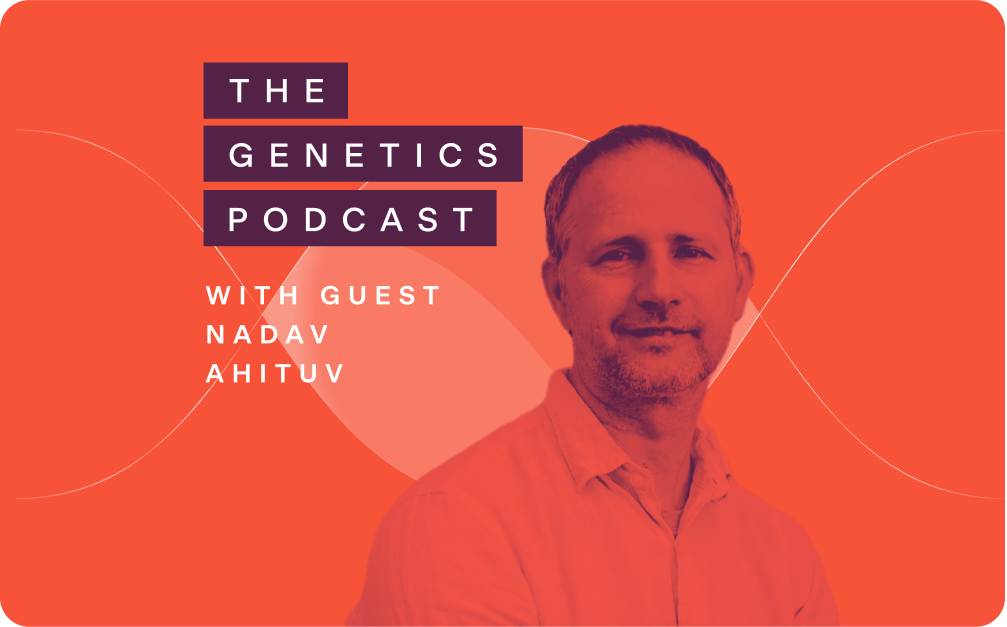Podcast recap: Uncovering the secrets of gene regulation with Nadav Ahituv

In the latest episode of The Genetics Podcast, host Patrick Short welcomes Nadav Ahituv, Director of the Institute for Human Genetics at the University of California San Francisco (UCSF). Together, they discuss the complex world of gene regulation, covering everything from non-coding DNA to advances in genetic technologies. Nadav shares his research on how gene regulatory elements influence human evolution, disease, and diversity, as well as the cutting-edge methods his lab is using to explore these elements.
The evolution of gene regulation research
Nadav's work focuses on the non-coding genome—once dismissed as "junk DNA"—which plays a critical role in gene regulation. He explains that when he first started studying this field, researchers had only a few genomes (like human, mouse, and fish) for comparison. Today, thanks to research like the Human Genome Project and new technologies such as CRISPR, the field has grown exponentially. Scientists can now examine gene regulatory elements on a genome-wide scale, helping to understand how subtle changes in non-coding DNA influence disease and diversity.
Breaking down the non-coding genome
One of the central challenges in genetics is deciphering the "grammar" of the non-coding genome. Unlike the well-known triplet code for proteins, regulatory elements operate through a more complex and nuanced system. Nadav's lab has taken a two-pronged approach: mutating known regulatory elements to test their function and building new regulatory sequences from scratch. These methods help researchers understand how small variations can affect gene expression, which is particularly important in diseases linked to gene regulation.
Common and rare variants in disease
Patrick and Nadav also discuss the different roles that common and rare genetic variants play in disease. Common variants tend to have smaller, more subtle effects on gene regulation, often accumulating to cause complex conditions like psychiatric disorders. In contrast, rare variants can have more dramatic effects, contributing to severe diseases like neurodevelopmental disorders. Nadav’s lab is working to better understand these dynamics, using advanced tools to identify the regulatory changes that lead to different health outcomes.
CRISPR and beyond: The future of genetic therapies
One of the most exciting topics in the podcast is Nadav’s work on developing gene therapies using CRISPR to treat diseases caused by gene dosage issues, such as haploinsufficiency. His lab discovered that by targeting regulatory elements, they could upregulate the expression of the remaining functional gene copy in conditions like obesity and certain neurodevelopmental disorders. This breakthrough has led to the formation of a biotech company, Regal Therapeutics, which is working to translate these findings into real-world treatments for patients.
As the conversation wraps up, Nadav highlights the future of gene regulation research, including the potential of machine learning to uncover patterns in regulatory sequences. He also touches on how his lab is using bat models to study diet and metabolism, further demonstrating the wide-ranging applications of his work.
Listen here:
